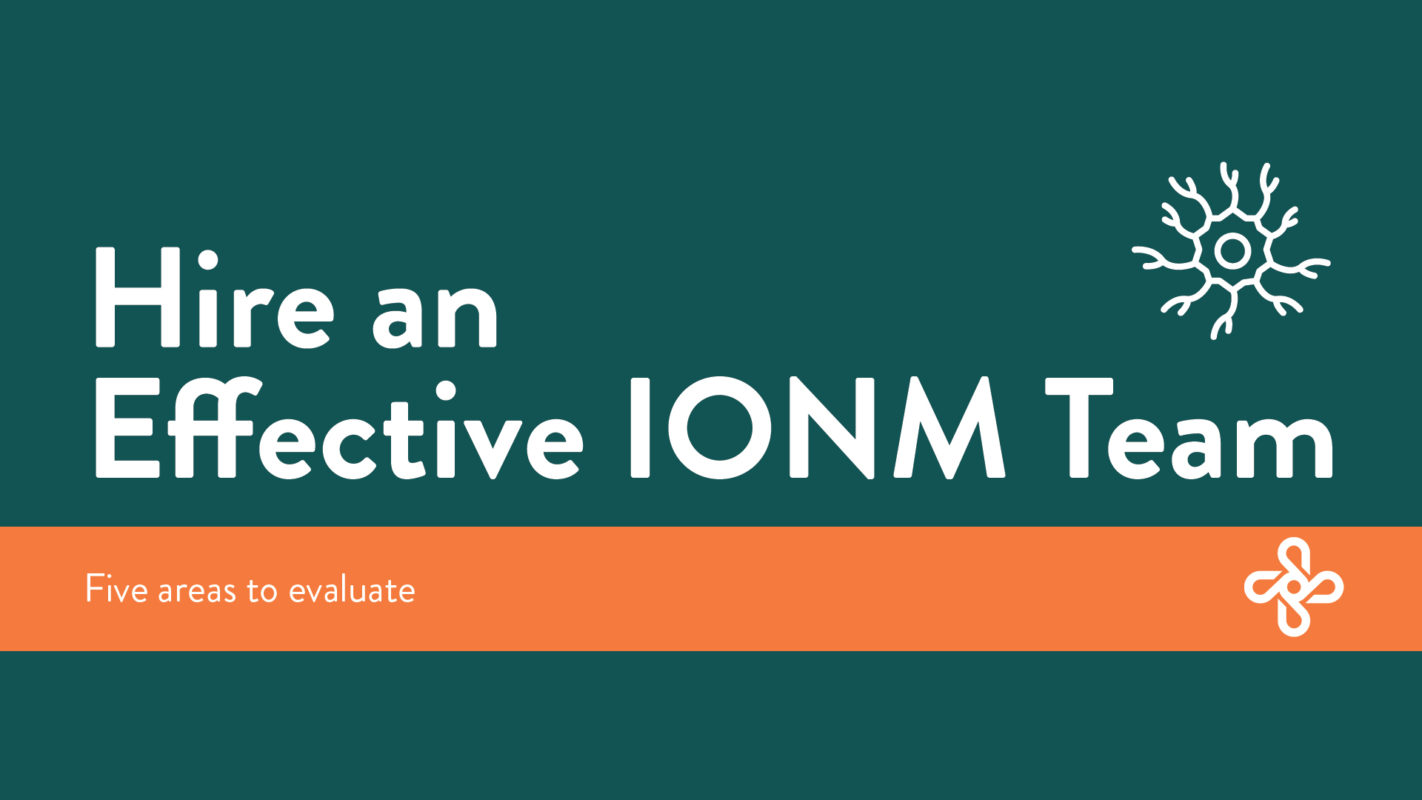
Like many surgeons and hospitals, you know the efficacy of intraoperative neuromonitoring (IONM). Your pre-work has determined that outsourcing the service is the best option for your team, financially and operationally. So, what’s next? How do you assess a prospective provider to ensure that your selection best suits the needs of your patients and surgical teams?
Surgeons will tell you that trust is a key driver of satisfaction with IONM services — trust that the IONM professionals will be present and ready as an integrated part of the team whenever they’re needed, trust to establish meaningful baselines before surgery, and trust to provide knowledgeable and confident support in the most crucial moments during surgery. When vetting a potential IONM provider, future trustworthiness might seem difficult to assess, but there are many indicators that will help you be confident that you’re making the right decision. Here are a few action items we recommend:
DOWNLOAD FREE GUIDE
- Evaluate the provider’s process for hiring experienced IONM professionals. Start by reviewing the company’s recruiting program. Determine how selective they are when hiring experienced surgical neurophysiologists and neuromonitoring physicians. How are prospective candidates evaluated? Ask to see evidence of the company’s process along with the standards and expectations for experienced new hires. Find out whether background checks include screening for a history of lost clinical privileges or involvement in compliance-related incidents.
- Learn how the provider hires, trains, and prepares future neuromonitoring professionals. Considerable time and effort are needed to prepare new talent for success in the high-pressure environment of the OR. Ask for evidence of a structured training program and content. Tour the training facilities and review the trainers’ qualifications. Find out what metrics are used to verify clinical competency at each stage of development. Learn how trainees are supervised as they transition to a real practice setting. Also, be sure to vet the program’s attention to communication skills — confidence and clarity are measurable behaviors and absolutely necessary when helping a surgeon through a delicate procedure.
- Determine the provider’s commitment to clinical quality and continuous improvement. Ask the IONM provider for their clinical quality guidelines and learn everything you can about their quality program. Who are the senior clinical leaders in the organization? Request evidence on how emerging trends and techniques are identified and incorporated into practice. Review examples of how the provider uses clinical and operational data for benchmarking, goal setting, and performance improvement. Assess the expectations and requirements of the company’s professional development program. Look for an overarching commitment to quality and continuous improvement at the organizational level — it is a fundamental indicator of the performance you can expect from its staff.
- Assess the value a provider places on credentialing and adherence to regulatory compliance. Clinical credentialing drives quality and patient safety, but proper management of the credentialing process and paperwork is important, too. How are forms and documentation maintained? At minimum, a provider should be able to provide evidence that it follows standards outlined by The Joint Commission. Ideally, however, the provider should maintain current certification and/or accreditation. A potential IONM provider should also be able to prove that its clinical and billing practices, as well as its physician relationships and business arrangements, can withstand regulatory scrutiny so that the company can help maximize reimbursements while minimizing the risk of penalties.
The need for trust in your IONM service provider extends beyond clinical expertise and effectiveness. With heightened efforts to uncover and prosecute violations of the False Claims Act, the Anti-Kickback Statute, and Stark Law, vetting a provider for its commitment to credentialing and compliance might just be your most important line of questioning. But these tips are just the beginning. Dive deeper into the key factors that lead to a successful partnership by downloading our guide.
About SpecialtyCare
SpecialtyCare is the industry leader in perfusion and intraoperative neuromonitoring, providing staff and resources to 1,100 hospitals and health systems nationwide. We offer services such as perfusion, ECMO, autotransfusion, sterile processing consulting, surgical assist, and complex instrument support. Our job is to make surgery safer, share innovation and research using our extensive knowledge base, and help your health system maintain standards of excellence and improve patient outcomes year after year. To learn more about our services, contact us today.



Comments are closed.